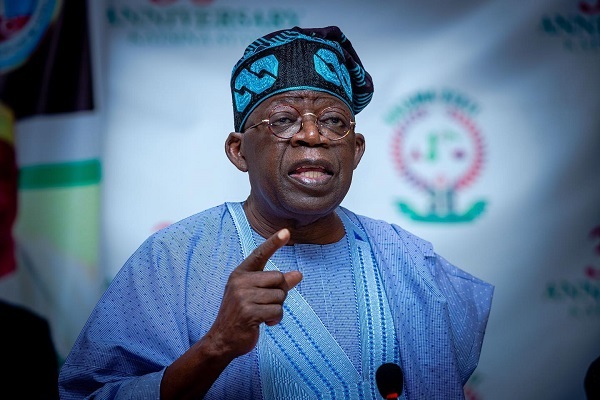President Bola Tinubu has emphasized that Nigerians were living under an illusion of prosperity that could have led to a complete economic collapse before his administration took action to eliminate the fuel subsidy.
On May 29, 2023, the day he was inaugurated, Tinubu announced the removal of the fuel subsidy, a decision he described as essential for safeguarding the nation’s future and preventing impending economic disaster.
Speaking at the combined 34th and 35th convocation ceremonies of the Federal University of Technology Akure (FUTA) in Ondo State over the weekend, Tinubu, represented by the Vice Chancellor of the University of Ilorin, Professor Wahab Egbewole, acknowledged the challenges associated with this tough decision.
“We assumed leadership during a time when our economy was in freefall due to crippling debts from fuel and dollar subsidies,” he stated.
While these subsidies were intended to assist the poor and enhance the quality of life for all Nigerians, the reality was that the average citizen bore the brunt of what was designed to be a safety net.
“The so-called good life we believed we were experiencing was merely an illusion, one that threatened to drive the nation towards utter collapse unless urgent measures were undertaken,” he explained.

Tinubu noted that the imperative to protect future generations and restore the country’s stability prompted the strategic moves to eliminate the fuel subsidy and unify exchange rates.
He reassured attendees that the effects of removing the subsidy are already becoming evident, with improvements in the national economy being reported.
“The macroeconomic indicators are exceeding expectations, and the microeconomic landscape is gradually stabilizing as we transition from a consumption-driven to a production-oriented economy,” he remarked.
Tinubu urged the graduates to unite with his administration in revitalizing the nation’s lost glory and values.
He also expressed concern over the mass emigration of youth seeking “greener pastures,” which has resulted in significant brain drain across various sectors.
“Many of our young people have opted for the seemingly easier path of emigrating to other countries, where citizens have worked diligently to rescue their nations from crises,” he lamented.
“Our trained intellectuals and professionals, for whom we have invested substantial resources, are leaving in droves just when their expertise is most needed at home. This trend is both disheartening and counterproductive.”
He called for a renewed sense of patriotism, assuring Nigerians that there is hope for a brighter future. “After every storm comes a calm. The Renewed Hope Agenda is progressing, and we are committed to steering Nigeria towards a better and greater future,” he concluded.




